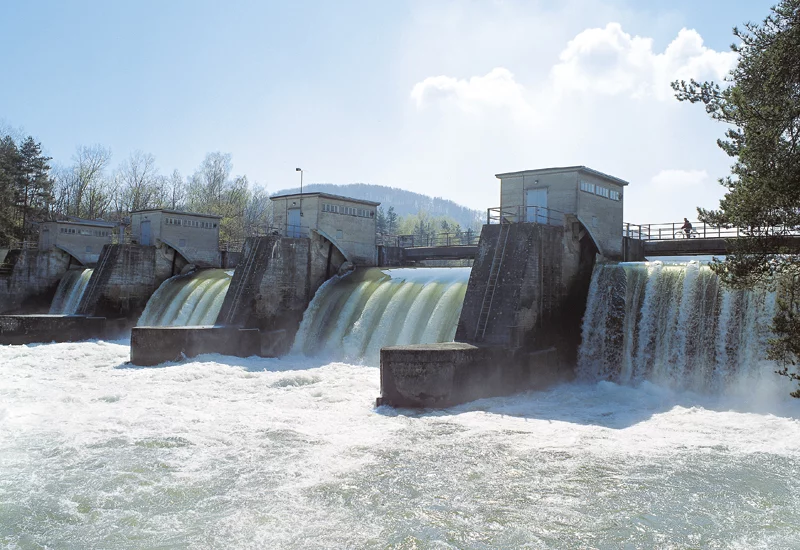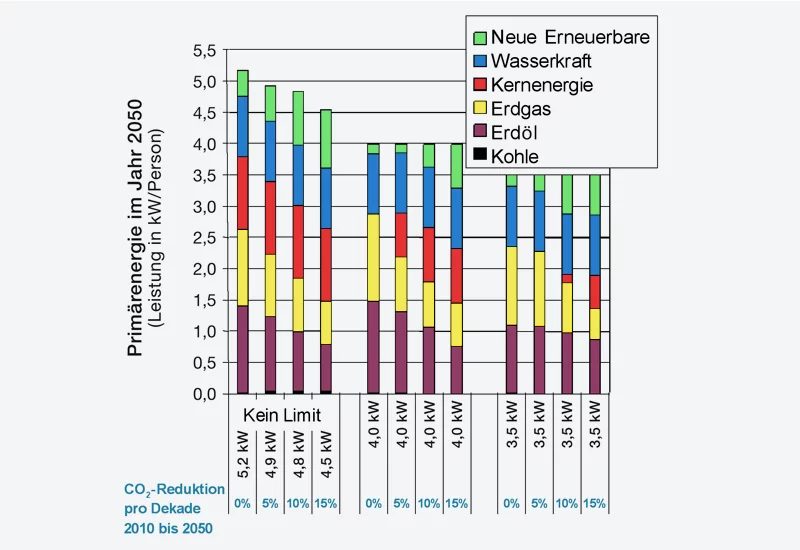The Paul Scherrer Institut analyses the structures and impacts of national and international energy systems. In 2007, for example, a study was carried out in which PSI makes recommendations as to what the national climatic targets of Switzerland could be. The study also highlighted the facts on which the Swiss energy system is based and indicated which targets can be achieved and how. Protection of the climate is, after all, one of the most important areas of national energy policy for the coming years, and the emission of CO2 in Switzerland should be at least halved by the year 2050. Better energy efficiency is an important factor towards this goal – but not the only one. The ways and means of achieving the long-term energy vision of the 2000-watt society, which is being promoted from various sides, was analysed and discussed. The aim of this vision is to achieve a sustainable energy supply while maintaining a stable standard of living. Based on the present average per-capita energy consumption in Switzerland of 6000 watts (mean full-load power), this constitutes a reduction of more than 60%.
The PSI study comes to the following conclusions:
Compared with other countries, Switzerland has a relatively low consumption of primary energy and rather low CO2 emission. The reason for this lies in the special circumstances prevailing in Switzerland. On the one hand, a large proportion of the electricity produced here comes from the primary sources of hydroelectric and nuclear power, both of which produce practically no CO2. On the other hand, Switzerland's industry is characterized by the services sector, which is not particularly energy intensive.
Most energy today is consumed in buildings and transport, and this can be substantially reduced.
The measures taken so far to increase energy efficiency must be stepped up in the future. This will not, however, be sufficient to achieve the objectives of a sustainable energy policy. The 2000-watt society is not achievable in Switzerland by 2050. Calculations by PSI show that the maximum socially acceptable reduction that can be achieved in energy consumption is not more than 30%. What is more important, however, is that halving the CO2 emission is nevertheless still possible, independent of this.
Electricity will become ever more important in the future, and this is especially true of a services-based society such as Switzerland. Electricity produced from renewable energy or nuclear energy can replace fossil fuels with high CO2 emission in other areas. A key to lower carbon dioxide is therefore the increased use of electricity and the retention of its production with zero CO2 emission.
An energy system with 50 % lower CO2 emission is thus feasible regardless of whether or not the 2000-watt target is achieved, and will involve extra costs of around 70 billion francs by 2050. In terms of the national economy (taking into account external costs), these costs are relatively low, because they only account for about one percent of GDP. Achievement of the 2000-watt target would be much more expensive and would necessitate rigid government intervention in the personal freedoms of the population.


